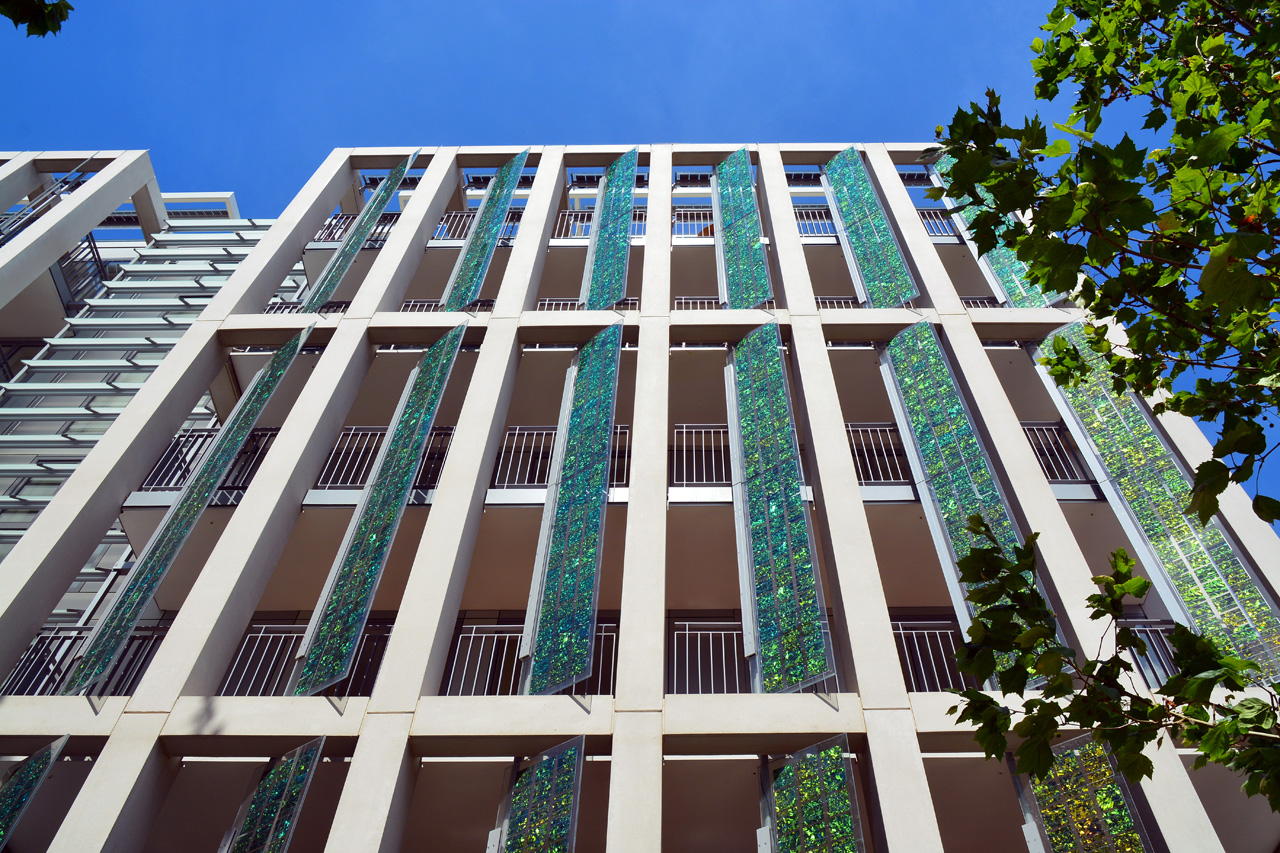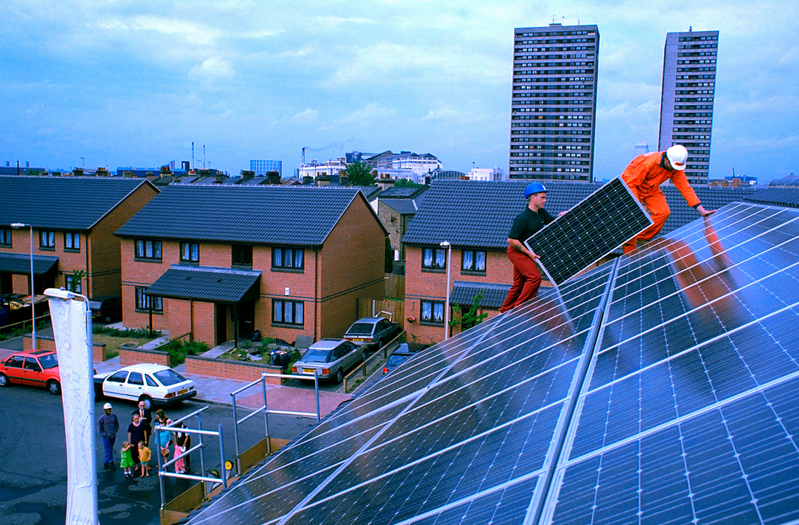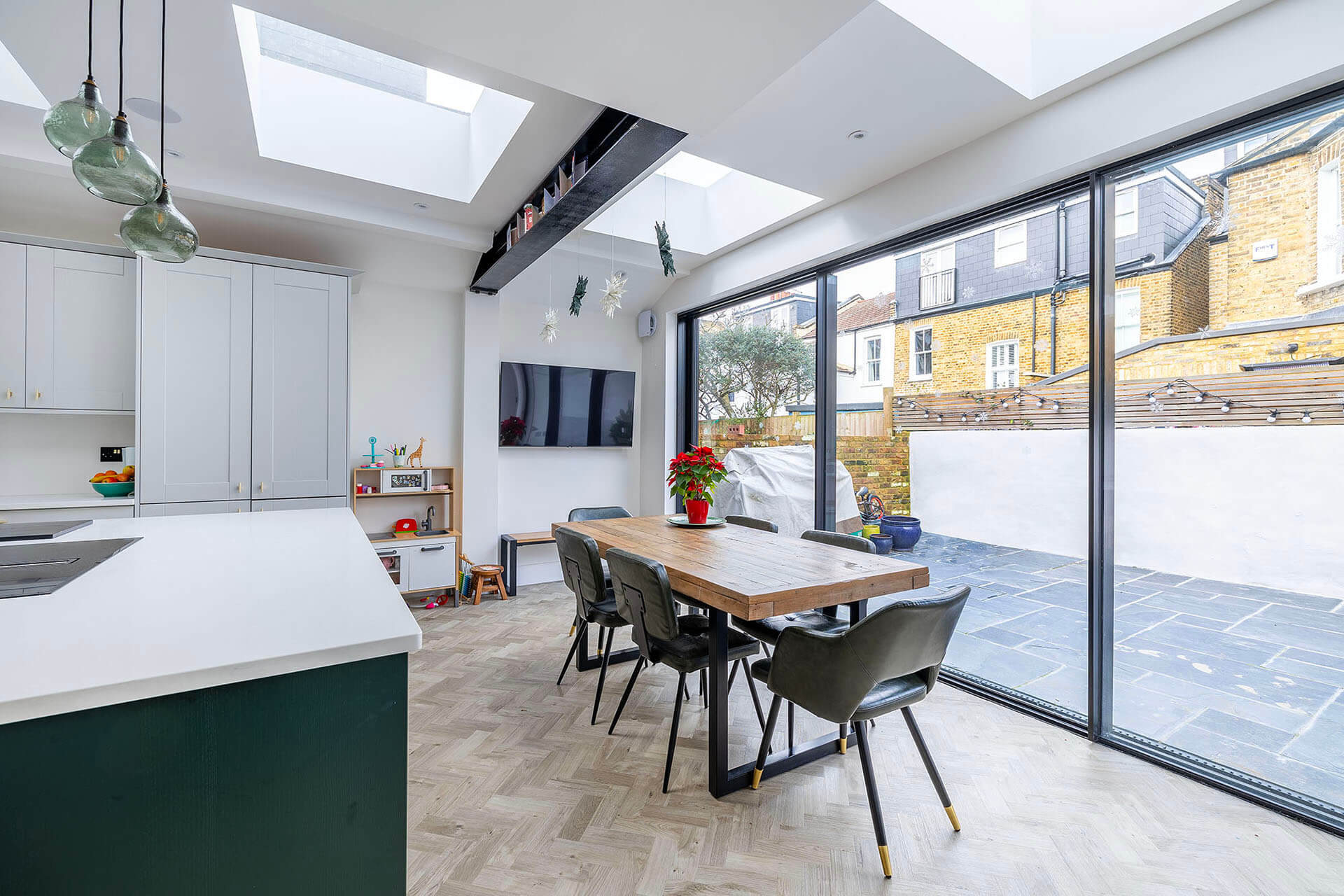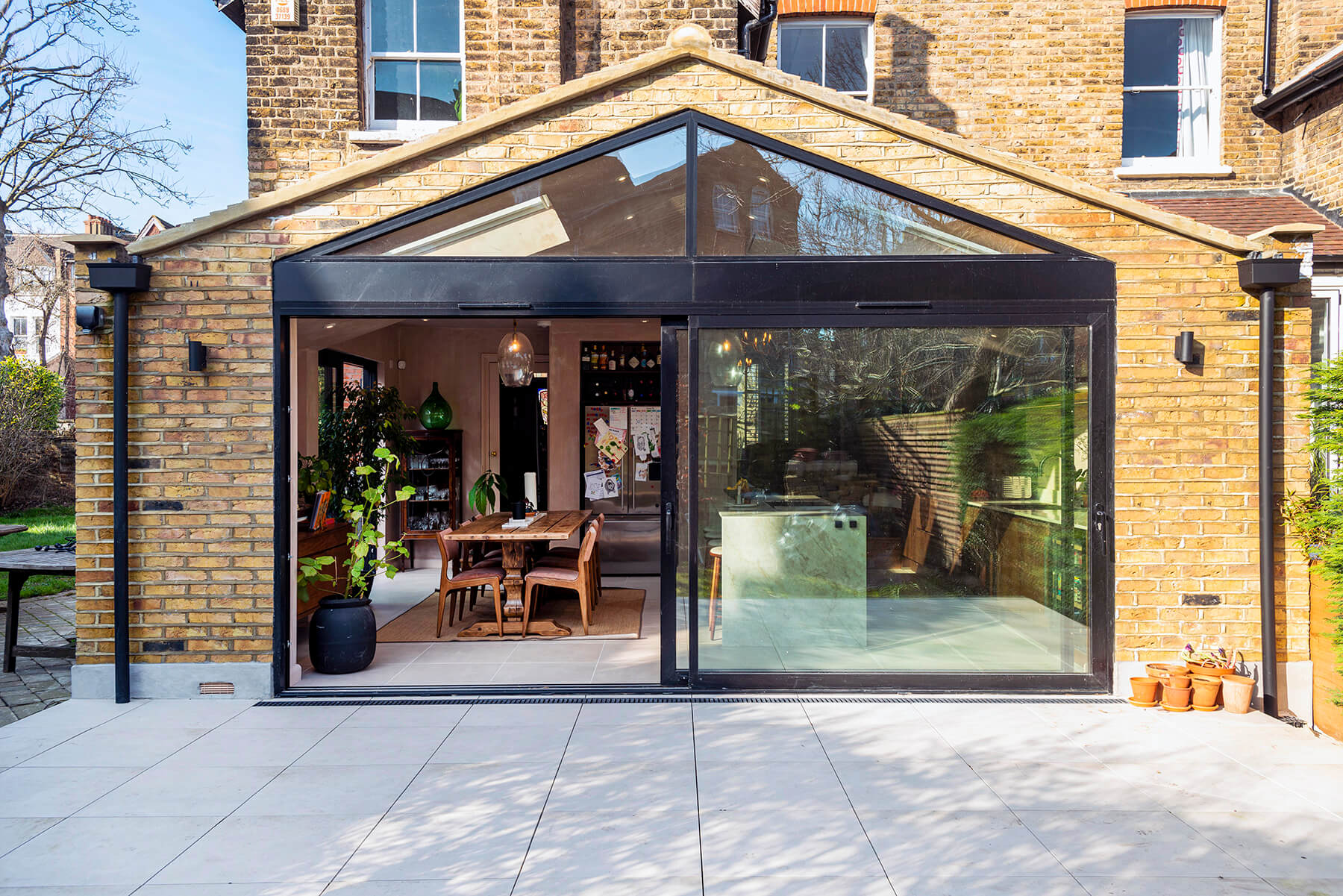Guide to Solar Panels For House Extensions
- 29-05-24
- 5 min read
- Blog
The adoption of solar energy in the UK has increased dramatically, with installations in 2022 skyrocketing by 138% from the previous year.
This boom demonstrates a growing recognition of solar power's role in transitioning to a sustainable, carbon-neutral energy future. Plus, solar panels have come down in price, and their efficiency has increased, leading to a widespread resurgence in their appeal.
If you’re contemplating extending your house, integrating solar panels is an eco-friendly and financially savvy choice.
Installing solar panels to your home during an extension is an excellent way of upgrading your home beyond the extension itself.
Read on to learn more about solar panels for house extensions.
Adding a house extension is a significant milestone that enhances your living space and presents a golden opportunity to integrate solar panels into your home.
This is especially true in urban environments like London, where maximising the efficiency and sustainability of every square foot is key.
Here's why extensions are ideal for solar and the types of extensions that lend themselves well to solar integration:
Extensions are typically designed with modern building standards and materials, making them perfect candidates for solar panel installation.
You can design the extension to incorporate solar panels from the outset, making it easier to orientate and tilt the panels and provide adequate structural support.
Unlike retrofitting solar panels on existing structures, where space and orientation may be limited, extensions allow you to design the roof space with solar energy in mind.
Whether your roof is flat and perfect for adjustable mounting systems or pitched and naturally faces south, you can optimise every aspect for maximum solar gain.
Single-Story Rear or Side Return Extensions: These are among the most common types of house extensions in London. A single-story extension usually means there's an unobstructed roof, which is ideal for solar panel installation. The roof can be designed with the perfect pitch and orientation for solar panels, maximising energy production.
Loft Conversions: Converting your loft can also provide a prime opportunity to install solar panels. The sloping roofs of loft conversions can be perfect for solar panels, especially if they face south.
Conservatories and Orangeries: Adding a conservatory or an orangery not only extends your living space but also provides a unique opportunity for solar integration. Glass roofs can be equipped with solar glass panels, which not only generate electricity but also maintain the structure's aesthetic appeal.
Garage Extensions: Extending or adding a garage can provide additional roof space for solar panels. This is particularly useful if the main roof of your house isn't suitable for solar panels due to orientation, shading, or other restrictions.

Above: Innovative solar installation at Kingsgate House on King's Road, London.
Solar energy harnesses the sun's power to generate electricity, a process made possible by solar panels' photovoltaic (PV) cells.
Typically made from silicon, these cells convert sunlight into electricity by activating electrons in the semiconductor material, creating an electric current.
This current, initially in direct current (DC), is converted to alternating current (AC) by an inverter, making it usable for household appliances.
So, there’s more involved in a solar system than just panels. We have:
Solar panels.
The solar inverter, which converts DC from the panels to AC for your home.
Batteries, which are optional. You only need batteries if you intend to store power for later.
Without batteries, solar power can only be used when the panels generate energy, e.g., not at night.
Many people wonder how much money solar panels can generate over time and whether they can ever ‘pay for themselves’ or even be profitable.
Energy bills are increasing dramatically, but once installed, solar panels provide an energy source contingent only on the Sun.
In much of the UK, the average payback period for solar panels ranges from 6 to 15 years. This depends on various factors, such as the cost of the system, the amount of sunlight your location receives, and electricity rates.
For example, if you install a 4kW system costing around £6,000 and it generates about 3,400 kWh per year (a realistic figure for many parts of the UK), and you're paying an average of 14p per kWh for electricity, your annual savings would be roughly £476.
Then, if you're able to sell back excess electricity to the grid through the government’s Smart Export Guarantee (SEG) scheme at a rate of some 5.5p per kWh, and you export 50% of your generated electricity, that's an additional annual earning of approximately £93.50.
Thus, your total annual financial benefit could be around £569.50.
By choosing solar energy, you're making a significant environmental impact by reducing greenhouse gas emissions.
A typical residential solar panel system can save approximately 1.3 to 1.6 tonnes of carbon per year, which, over the lifetime of the panels, contributes to a substantial reduction in one's carbon footprint.
After the payback period finishes, the savings become more direct – as the system is already paid for.
Solar panels have a long lifespan, often 25 years or more. Once you've covered your initial investment, you'll enjoy essentially free electricity for many years. This is particularly beneficial as energy prices continue to rise.
Here’s an example of how much a solar system could earn you over time:
System Size: 4kW
Annual Energy Production: Approximately 3,400 kWh
Initial Investment: Around £6,000
Electricity Rate: 14p per kWh
SEG Rate: 5.5p per kWh for exported energy
Annual Savings: £476 (from using 3,400 kWh of solar energy instead of purchasing from the grid)
Annual Earnings: £93.50 (assuming 50% of the generated electricity is exported back to the grid under the SEG)
Total Annual Financial Benefit: Approximately £569.50
Payback Period: The initial investment of £6,000 divided by the annual financial benefit of £569.50 gives a payback period of around 10.5 years.
You also have to factor in the added value a solar system contributes to your property.
When planning to add solar panels to your house extension, especially in a bustling and diverse city like London, several key factors need your attention to maximise the benefits of your solar investment.
First, consider the available space on your extension's roof. The area available will dictate the size of the solar system you can install.
It's also crucial to account for any potential obstructions, such as chimneys, vents, or nearby buildings that might cast shadows on your panels, reducing their efficiency.

Above: Optimal roof positioning is vital for the effectiveness of solar panels.
In the Northern Hemisphere, solar panels perform best when facing south, as they receive the most sunlight throughout the day. However, if a south-facing roof isn't an option, don't fret.
East or west orientations can still capture significant sunlight, especially in long summer days. The optimal tilt angle for solar panels is between 30° and 40°, mimicking the UK's latitude to ensure maximum sunlight absorption year-round.
To take your solar energy generation up a notch, consider solar trackers. These devices adjust the position of your solar panels throughout the day, ensuring they always face the sun directly.
While more common in ground-mounted systems, there are solutions for rooftops too. Solar trackers boost the efficiency of your solar panels, albeit at a higher initial cost and with additional maintenance considerations.
The right installer can make all the difference in your solar journey. Look for certifications such as the Microgeneration Certification Scheme (MCS), which assures that the installer adheres to high standards of quality and reliability.
Don't hesitate to ask for references or case studies, especially for projects similar to your house extension in London.
A reputable installer should also provide a clear and comprehensive quote detailing the system size, expected energy output, costs, and any available warranties.
Integrating solar panels into your house extension is an upgrade and a transformation towards a more sustainable, energy-efficient home.
Whether you're extending your living space, converting your loft, or adding a conservatory, solar panels add value not only in terms of energy savings but also by enhancing your property's appeal in today's eco-conscious market.
If you're ready to take the next step to a solar-powered extension, Design Team is here to guide you toward creating your dream project
Book a free Design Consultation with one of our team to discuss your project in more detail.
.jpg)
11-11-24 6

10-11-24 6

25-10-24 6